Close
GET 20% OFF
By subscribing to our newsletter
The power to choose: Modular furniture in the modern workplace
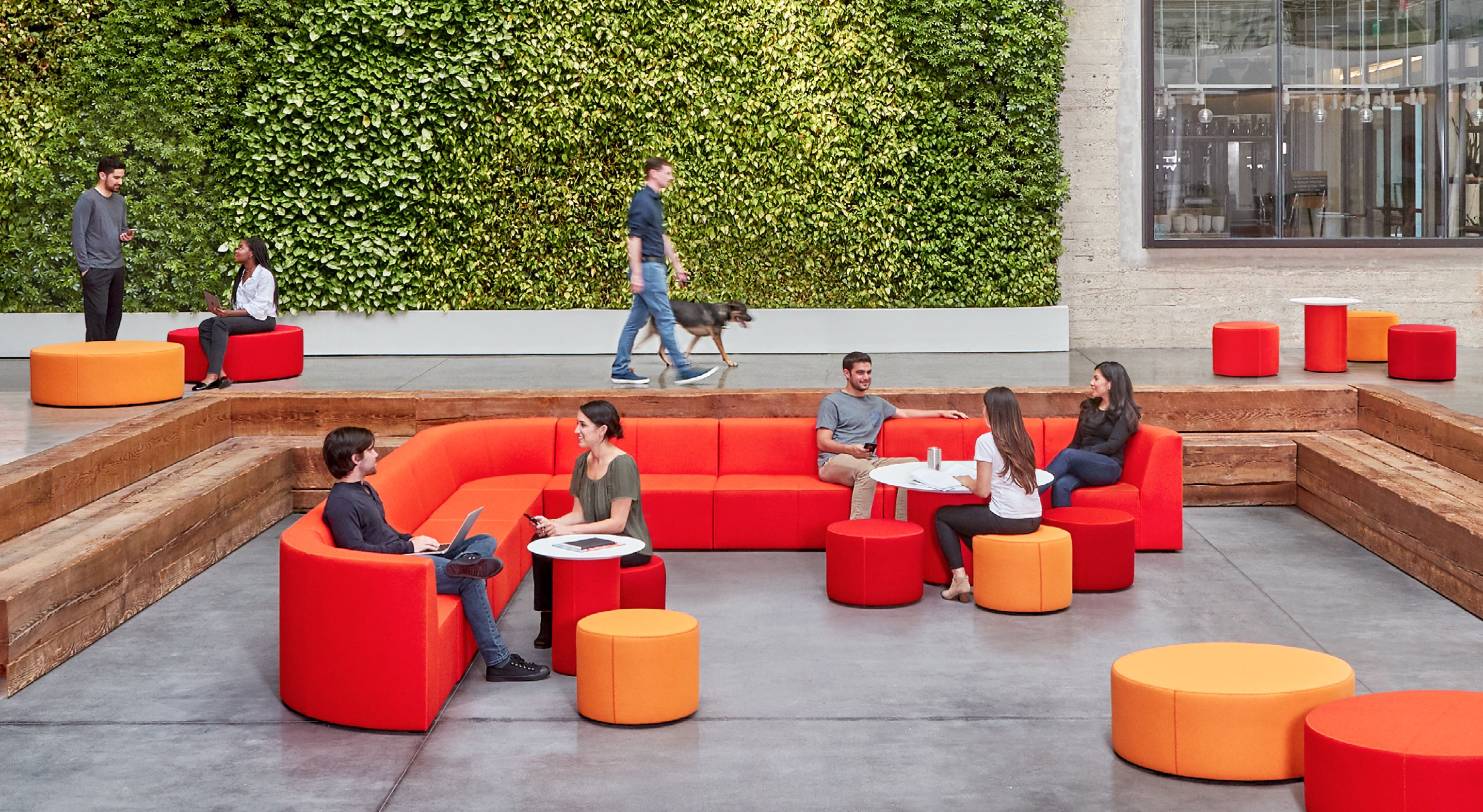 Work in the modern workplace is no longer static. Today, employees value flexibility, movement and autonomy; being able to individualise their workstation and the opportunity to work in more informal, flexible and collaborative zones. Modular furniture has consequently become a key component in this age of agile working, and furniture designers and manufacturers are responding with modular systems that offer a breadth of possibilities depending on space, users and needs. This availability of choice – rather than a one-size-fits-all approach – also has benefits for employee wellbeing, company innovation and organisational change.
A strong link exists between employee wellbeing and business performance. Simply, healthier and happier workers are more engaged, efficient and productive. Modular furniture provides the opportunity for creating more individualised and varied settings that support diverse work styles and encourage a more dynamic atmosphere. And by giving employees greater choice and control over their workspace, it increases their comfort, happiness and performance.
Work in the modern workplace is no longer static. Today, employees value flexibility, movement and autonomy; being able to individualise their workstation and the opportunity to work in more informal, flexible and collaborative zones. Modular furniture has consequently become a key component in this age of agile working, and furniture designers and manufacturers are responding with modular systems that offer a breadth of possibilities depending on space, users and needs. This availability of choice – rather than a one-size-fits-all approach – also has benefits for employee wellbeing, company innovation and organisational change.
A strong link exists between employee wellbeing and business performance. Simply, healthier and happier workers are more engaged, efficient and productive. Modular furniture provides the opportunity for creating more individualised and varied settings that support diverse work styles and encourage a more dynamic atmosphere. And by giving employees greater choice and control over their workspace, it increases their comfort, happiness and performance.
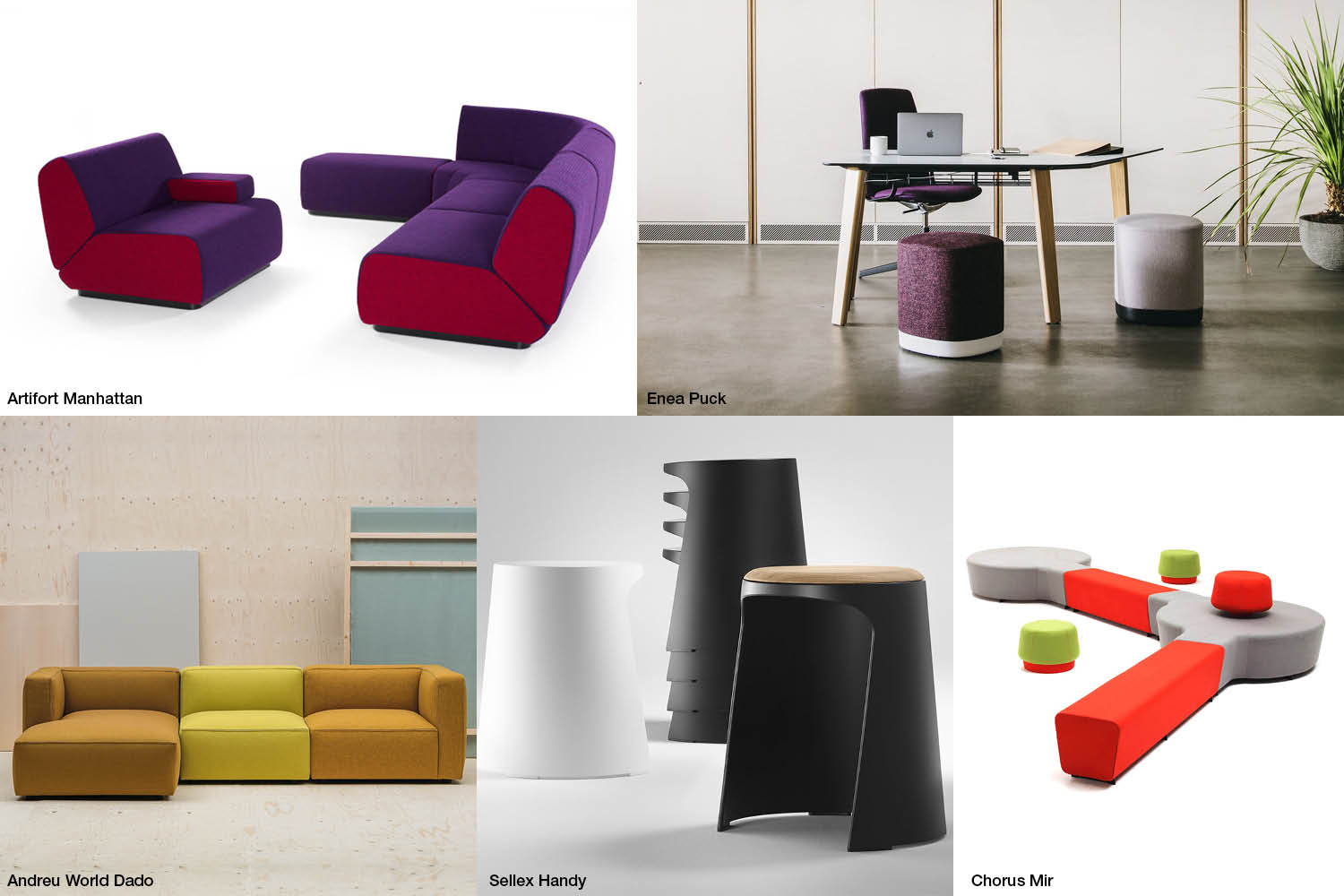 No longer restricted to a desk, employees use lounge-like areas or break-out zones as flexible spaces for work or socialising. Modular sofas and seats, such as Artifort’s Manhattan, Andreu World’s Dado and Chorus’ MIR, foster more relaxed or collaborative modes of work, while ottomans and stools, such as the new Handy Stool by Sellex or Puck by ENEA, can do double duty as seating or tables in different types of spaces. The modularity of these collections means they can be arranged in multiple configurations and easily rearranged depending on needs.
There is also a strong connection between workplace design, innovation and business performance. The Gensler Workplace Survey 2016 found that high-performing companies are more innovative, and innovative companies are five times more likely to have workspaces that prioritise both individual and group workspace.
No longer restricted to a desk, employees use lounge-like areas or break-out zones as flexible spaces for work or socialising. Modular sofas and seats, such as Artifort’s Manhattan, Andreu World’s Dado and Chorus’ MIR, foster more relaxed or collaborative modes of work, while ottomans and stools, such as the new Handy Stool by Sellex or Puck by ENEA, can do double duty as seating or tables in different types of spaces. The modularity of these collections means they can be arranged in multiple configurations and easily rearranged depending on needs.
There is also a strong connection between workplace design, innovation and business performance. The Gensler Workplace Survey 2016 found that high-performing companies are more innovative, and innovative companies are five times more likely to have workspaces that prioritise both individual and group workspace.
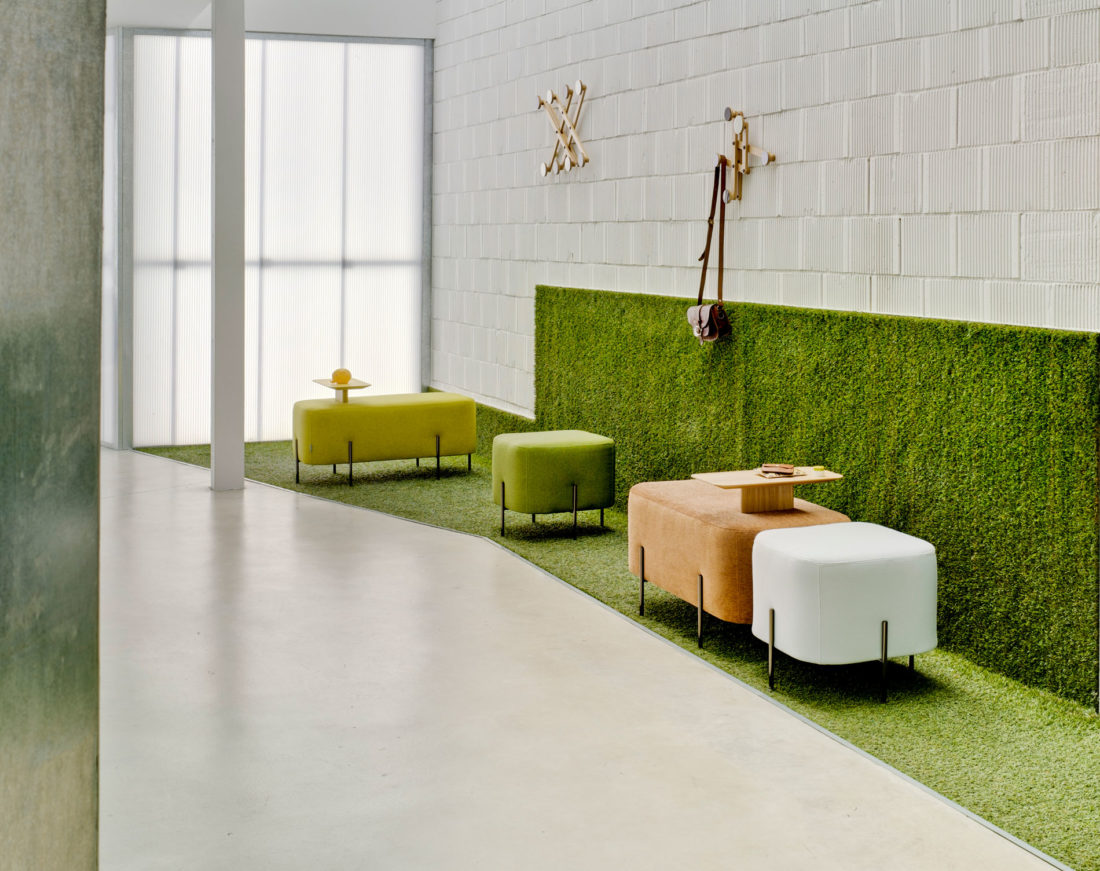 Modular furniture solutions give companies the ability to offer a greater variety of workspaces that are conducive to collaboration and can be tailored to individual needs and preferences. Elephant by Sancal (above) is a series of ottomans that can be arranged in linear of clustered formations for seating, with an optional wooden tray for writing, reading or computer work. Similarly,
Mosaico by Sancal (below) combines seating, ottomans and tables for a range of different spatial typologies.
Modular furniture solutions give companies the ability to offer a greater variety of workspaces that are conducive to collaboration and can be tailored to individual needs and preferences. Elephant by Sancal (above) is a series of ottomans that can be arranged in linear of clustered formations for seating, with an optional wooden tray for writing, reading or computer work. Similarly,
Mosaico by Sancal (below) combines seating, ottomans and tables for a range of different spatial typologies.
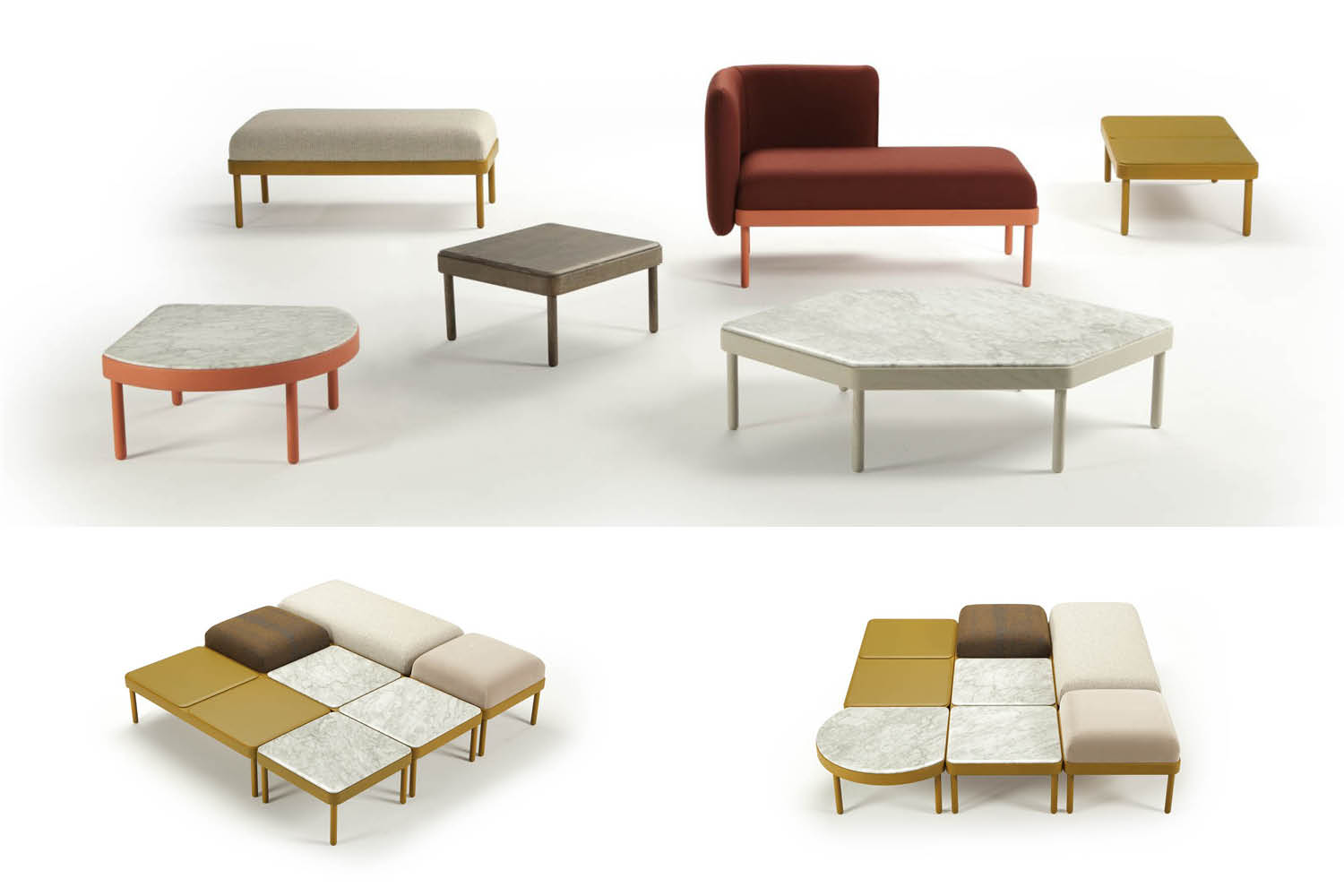 The mobility and flexibility of modular furniture also facilitates the evolving nature of companies as they expand, downsize, move spaces or adapt to the needs of the workforce. Unlike traditional office furniture, modular solutions are portable, scalable and reconfigurable.
The mobility and flexibility of modular furniture also facilitates the evolving nature of companies as they expand, downsize, move spaces or adapt to the needs of the workforce. Unlike traditional office furniture, modular solutions are portable, scalable and reconfigurable.
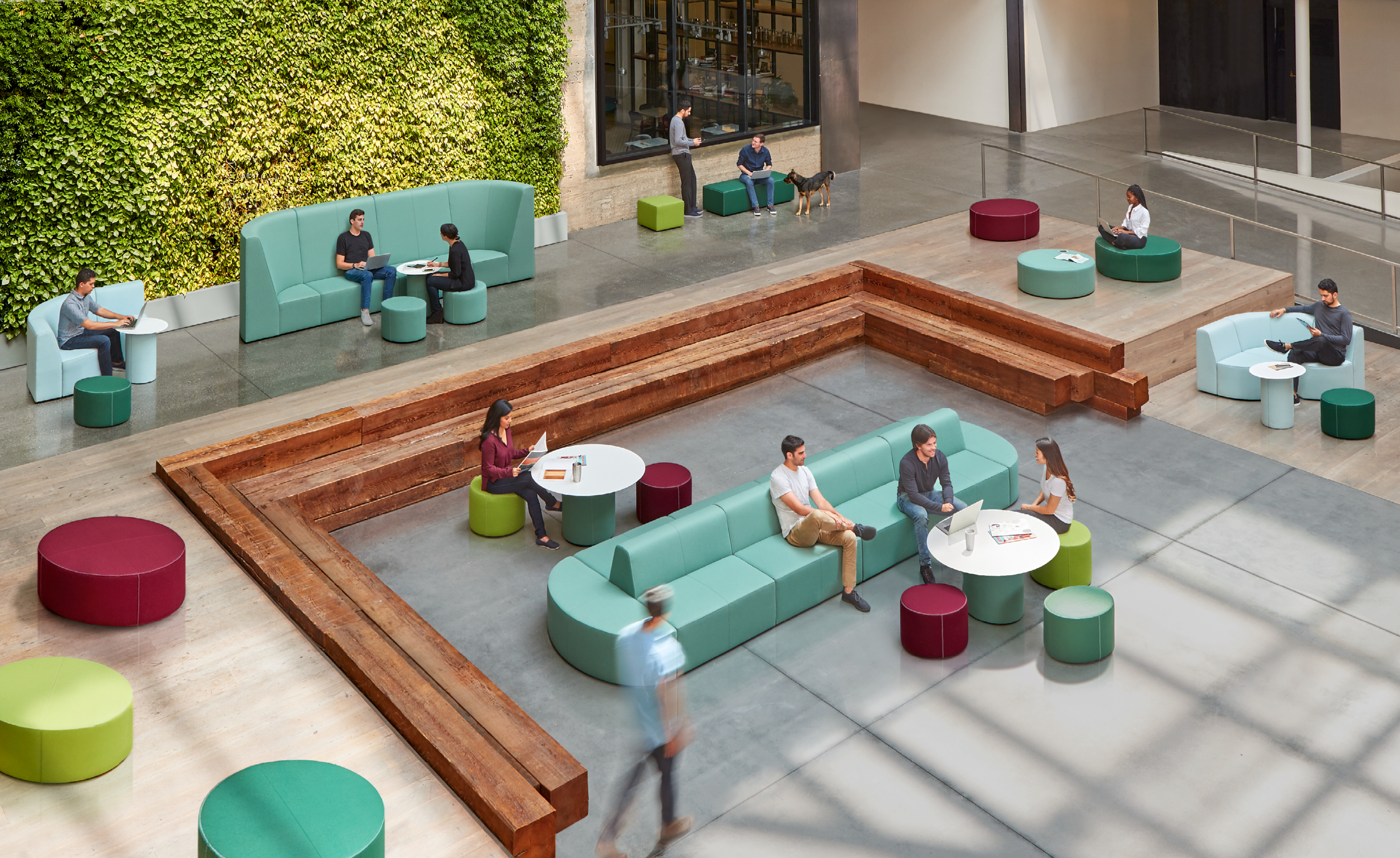 Joe Gebbia, cofounder of Airbnb, designed a modular collection that offers a flexible solution for the evolving workplace. Faced with the challenge of adapting existing furnishings to different spaces as Airbnb expanded, Gebbia joined forces with Bernhardt Design to create Neighborhood (above).The 38 modules allow for endless configurations, and the individual units can be configured depending on privacy, purpose and needs. Neighborhood, like a selection of many other Bernhardt Design products, is produced locally under license, reducing lead times while still ensuring the same exceptional quality.
Joe Gebbia, cofounder of Airbnb, designed a modular collection that offers a flexible solution for the evolving workplace. Faced with the challenge of adapting existing furnishings to different spaces as Airbnb expanded, Gebbia joined forces with Bernhardt Design to create Neighborhood (above).The 38 modules allow for endless configurations, and the individual units can be configured depending on privacy, purpose and needs. Neighborhood, like a selection of many other Bernhardt Design products, is produced locally under license, reducing lead times while still ensuring the same exceptional quality.
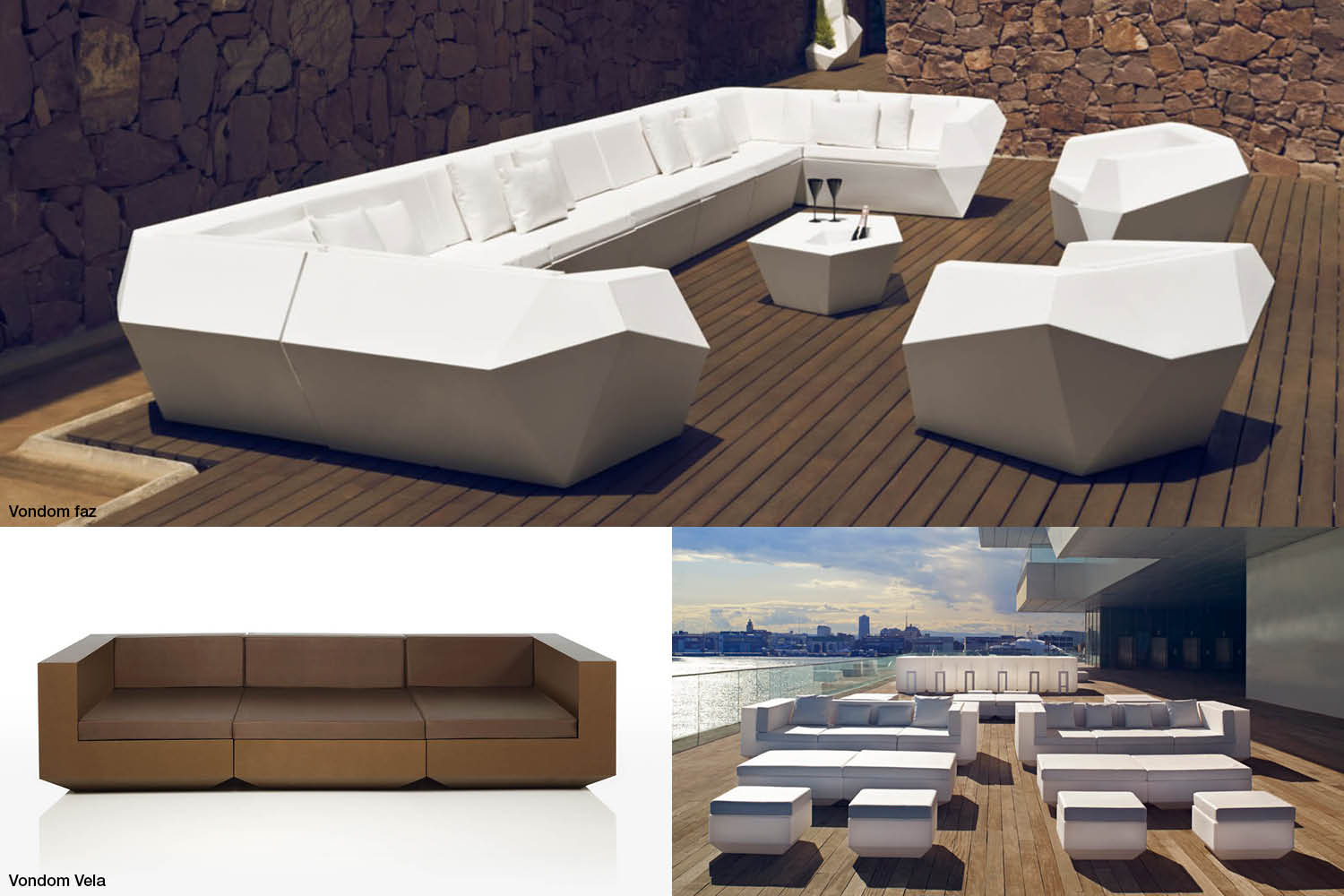 Vondom also offers wide-ranging collections with Vela and Faz, which are designed for outdoor spaces but are equally at home in foyers and tertiary education settings.
When it comes to modular systems, the more units in a range, the more options for designers and companies to optimise a workplace. Similarly, the more settings or spatial typologies within a workplace, the more options for employees to optimise their working day, contributing to greater wellbeing, innovation and ultimately business performance.
To discuss incorporating modular furniture in your next project please contact our team on +61 2 9669 1788 or at i[email protected]
Vondom also offers wide-ranging collections with Vela and Faz, which are designed for outdoor spaces but are equally at home in foyers and tertiary education settings.
When it comes to modular systems, the more units in a range, the more options for designers and companies to optimise a workplace. Similarly, the more settings or spatial typologies within a workplace, the more options for employees to optimise their working day, contributing to greater wellbeing, innovation and ultimately business performance.
To discuss incorporating modular furniture in your next project please contact our team on +61 2 9669 1788 or at i[email protected]
Posted On: 22 January, 2019
Posted By: MAXANDYOU
Search
Archives
- 2020
- 2019
- 2018
- 2017
- 2016
- 2015
- 2014
- 2013
- 2012
- 2011
- 2010
- 2009
My Wish List

